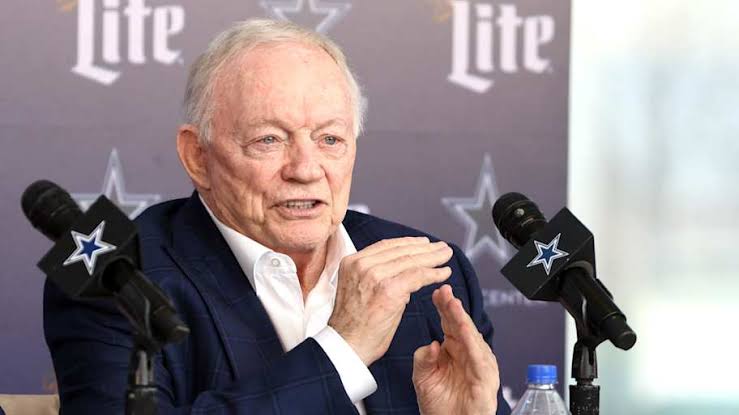Super Bowl Week in New Orleans: Jerry Jones’ Take on Cowboys’ Absence
As the football world gathers in New Orleans for Super Bowl week and the NFL’s annual awards ceremony, big names from across the league — including players, coaches, and owners — are in the spotlight. Naturally, Dallas Cowboys Owner and General Manager Jerry Jones made sure he was part of the action. Jones rarely misses an opportunity to speak his mind, and the media always welcomes his remarks.
During the event, Dianna Russini from The 33rd Team caught up with Jones to discuss what it will take for the Cowboys to finally make it back to the Super Bowl. While Jerry expressed shock that his team wasn’t competing this year, his response didn’t come as a surprise to those familiar with his interviews.
The Right Formula for Winning
“You can’t win with just talent alone,” Jones said. “It’s gotta be the right talent, with really the right economics. I’ve always made some pretty serious risk in talent, and we certainly can do that here.”
Jones is correct that success in the NFL requires more than just assembling a talented roster. However, having top-tier players certainly doesn’t hurt. For nearly three decades, the Cowboys’ front office has struggled to strike the right balance between building a competitive team and adhering to the salary cap.
The Cowboys seem so fixated on perfectly blending talent with economic efficiency that they often miss the bigger picture. While Jones hinted at his history of taking “serious risks” on talent, those days appear to be in the past. What he considers a “risk” might not align with what fans want.
Supporters of the Cowboys expect “risk” to mean aggressive spending in free agency to acquire top players. But for Jones, it often means signing inexpensive players who exceed modest expectations. When a player has a decent season on a bargain contract, Jones often touts it as a victory.
Notable risks in recent memory include trading a first-round pick for Amari Cooper. But beyond that, the list gets thin. The acquisitions of Roy Williams from Detroit and Joey Galloway from Seattle are so far in the past that they hardly qualify as recent.
Winning Now or Later?
Jones defended his decision to sign quarterback Dak Prescott to a lucrative contract, emphasizing his desire to win immediately.
“I wouldn’t have signed Dak Prescott, the highest-paid player in the NFL if NOW wasn’t when we wanted to win,” Jones stated. “This is a shocker to be here at the Super Bowl and not have the Cowboys here. I didn’t plan on that when I made that agreement with him.”
However, if winning now was truly the goal, critics argue that Jones should have been more proactive in surrounding Prescott with explosive talent. The Cowboys’ offense lacked playmakers beyond CeeDee Lamb, and KaVontae Turpin didn’t receive enough opportunities to make a significant impact.
Big-name running backs like Saquon Barkley and hometown star Derrick Henry were available in free agency, but the Cowboys didn’t even reach out to Henry. This cautious approach to talent acquisition has contributed to the team’s 30-season drought without an NFC Championship appearance. Blaming Prescott’s contract for the team’s struggles feels misplaced.
Jones’ Confidence in His Vision
“I’m not gonna have an answering to some journalist or having it interpreted for me,” Jones insisted. “I know what it takes to get there and we will do those things. Now, am I gonna be right every time? Of course not.”
It’s hard to argue with Jones’ statement — he does have three Super Bowl rings as proof of his past success. But those championships were won decades ago. The NFL has evolved since then, and many believe Jones is out of touch with what it takes to build a modern championship team.
One promising development is that new head coach Brian Schottenheimer appears to have the freedom to assemble his own coaching staff, which could signal a shift in the Cowboys’ approach.
Financial Focus vs. On-Field Results
The Cowboys excel at managing their finances. They are perhaps the best in the league when it comes to staying within the salary cap. However, their obsession with financial discipline often comes at the expense of on-field success. The front office seems more focused on keeping the books clean than building a championship-caliber team.
While their financial management might earn praise from accountants, it doesn’t win games. Until the Cowboys change their approach to free agency and talent acquisition, they are unlikely to achieve the results that fans have been waiting for.
